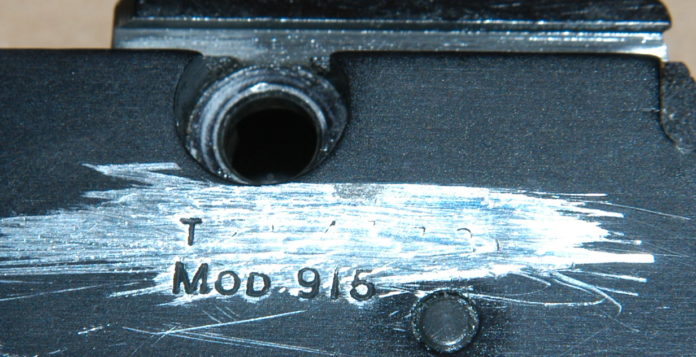A federal judge in West Virginia ruled that a federal law prohibiting possession of guns with their serial numbers removed was unconstitutional. He relied on the landmark Second Amendment ruling by the U.S. Supreme Court in June.
18 U.S.C. SS 922(k) prohibits anyone from knowingly transporting in interstate or international commerce any firearm that has had its serial number removed, oliterated or altered by an importer or manufacturer.
U.S. v. Price, U.S. district judge Joseph Goodwin found that the federal law was inconsistent with the United States’ “historical traditions of firearm regulation,” which was the standard set by the Supreme Court in the 6-3 New York State Rifle & Pistol Association, Inc. v. Bruen decision.
Randy Price was arrested for illegally possessing a firearm with the serial number removed. During a Charleston traffic stop, the weapon was discovered in Price’s vehicle. Although Price was convicted of other felonies, the judge dismissed this charge and added another charge of Price illegally possessing his gun.
Lex Coleman, a defense lawyer, stated that Goodwin’s decision was “thoughtful and measured” in a statement to Reuters. The U.S. Attorney’s Office in Charge of Prosecution said that it was reviewing the ruling and evaluating options.
To prevent illegal gun sales and track firearms used in criminal acts, the Gun Control Act of 1968 mandates that firearms be assigned serial numbers.
Price argued that the law was unconstitutional according to the historical standard test set in Bruen. The Second Amendment did not require serial numbers at the time it was adopted in 1791. They were not used widely until 1968.




